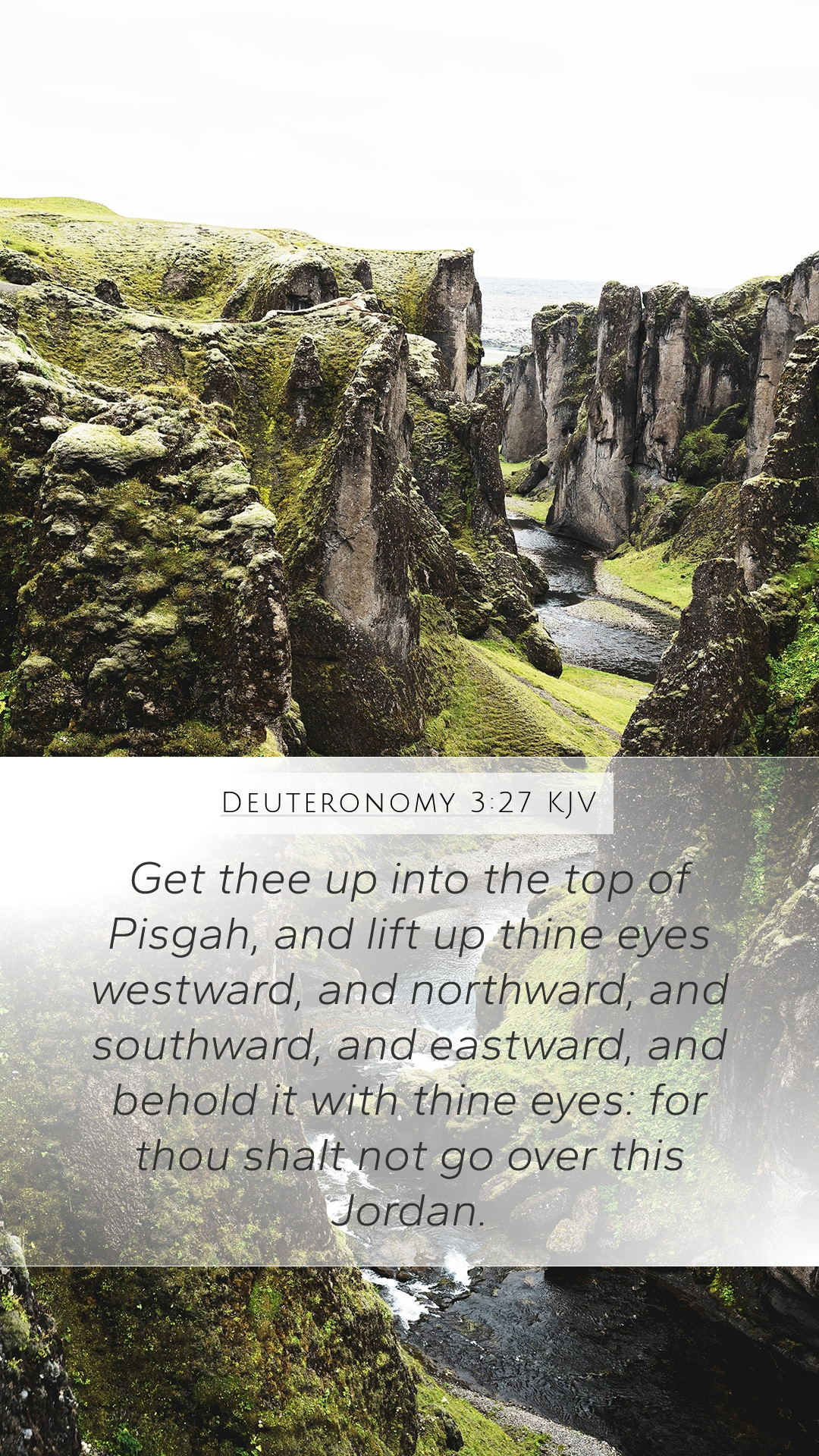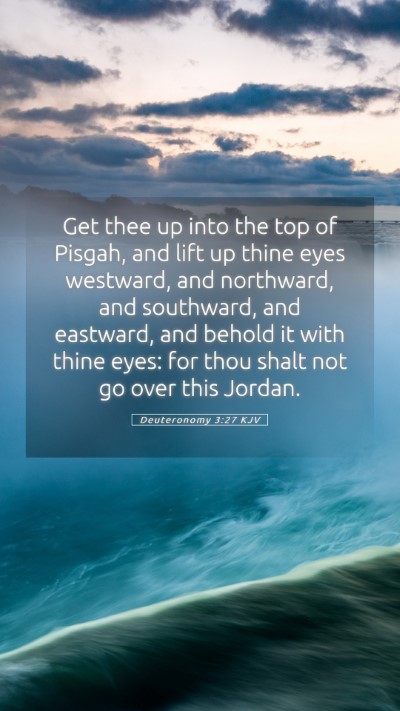Understanding Deuteronomy 3:27
Bible Verse: Deuteronomy 3:27 - "Get thee up into the top of Pisgah, and lift up thine eyes westward, and northward, and southward, and eastward, and behold it with thine eyes: for thou shalt not go over this Jordan."
Meaning and Interpretation
This verse holds significant meaning within the context of Moses' journey and the teachings of the Pentateuch. In this passage, God instructs Moses to climb to the summit of Mount Pisgah to view the Promised Land. However, it is accompanied by the poignant reminder that Moses would not enter this land due to his previous disobedience.
Key Themes
- Divine Instruction: God’s command to Moses emphasizes the importance of obedience and submission to God's will.
- Promise of the Land: The view from Pisgah represents hope and fulfillment of God’s promise to Israel, albeit not for Moses himself.
- Reflection and Closure: This moment serves as a reflective pause in Moses' life, marking the end of his leadership and journey.
Commentary Insights
The insights from various public domain commentaries illuminate several aspects of this verse:
Matthew Henry's Commentary
Henry highlights the great mercy of God in allowing Moses to see the promised land, even as he was forbidden to enter it. This act serves as a reminder of the goodness of God, even when here are consequences for rebellion. It also emphasizes that leaders must constantly rely on God's grace and guidance.
Albert Barnes' Notes
Barnes elaborates on the geographical significance of Mount Pisgah, noting its strategic vantage point over the land. Moses' longing to enter can be understood as part of the natural human desire to complete one's journey and reach goals. This also reflects the hope and promise that the Israelites would receive a land flowing with milk and honey.
Adam Clarke's Commentary
Clarke provides a detailed historical context of the wilderness journey and the Israelite's struggles, stressing that Moses’ inability to enter the Promised Land serves as a solemn reminder of the consequences of sin and disobedience. It encapsulates the essence of faithfulness and the rewards of perseverance through trials.
Application to Daily Life
This verse, while historical, is deeply applicable to modern readers in various ways:
- It encourages honest reflection on the purpose of our journeys and the importance of obedience.
- It raises the question of how we perceive our dreams and aspirations when faced with barriers.
- The reminder that our journeys may not culminate in the way we had hoped serves to inspire faith in God's overall plan.
Related Bible Cross References
- Numbers 20:12 - God explains why Moses cannot enter the Promised Land.
- Deuteronomy 34:1-4 - The account of Moses' death and burial.
- Hebrews 3:16-19 - The warning against unbelief and disobedience.
Conclusion
Deuteronomy 3:27 serves as a powerful reminder of the scope of God’s promises. As you study this verse, consider how it illustrates God's relationship with His people, the importance of obedience, and the complex emotions of leadership and longing. For those seeking bible verse meanings, bible verse interpretations, and deeper scripture analysis, this passage is ripe for exploration. It provides rich context for bible study lessons and could be a focal point of discussion in bible study groups.


